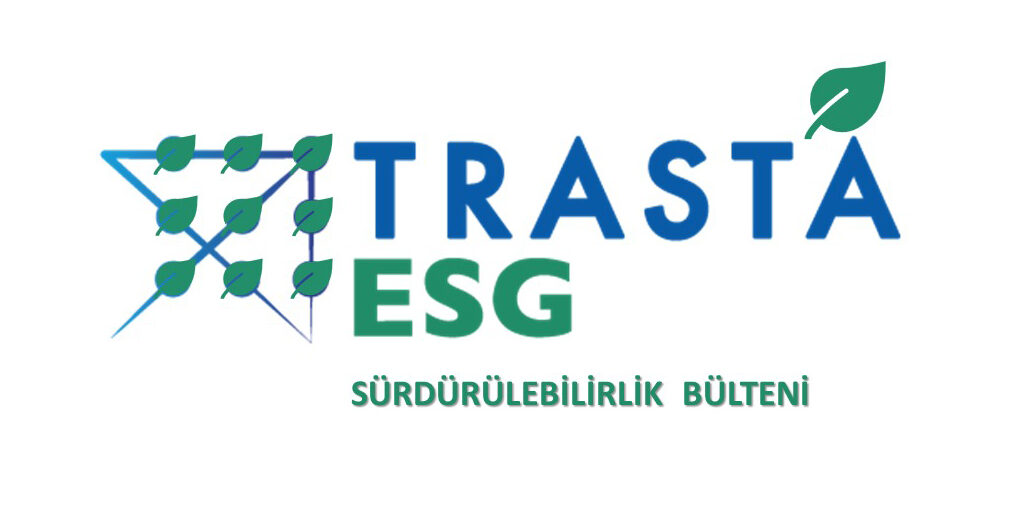MESSAGES FROM US
Dear Readers,
Extreme weather events, droughts, floods, and record-breaking temperatures have now become familiar sights. But from the world of finance to governments, from companies to individuals — how prepared are we for this new climate reality? In this issue, we cover a range of topics, from S&P Global Sustainable1’s striking dataset to Turkey’s historic step in carbon markets, from climate risks reshaping investment decisions to carbon leakage, and other key developments in sustainability.
Stay sustainable…
ÖZGÜN ÇINAR, CEO

ESG NEWS
- 40 former leaders have published an open letter highlighting the worldwide crisis of inequality. The call, quoted in The Guardian, calls on current leaders to be more active on climate, poverty and social justice issues. DETAIL

- Water pollution after a fire can last for years. Unfortunately, in the last few days, we have lost large forests in our country due to fires. While the lungs of the country were burning, the lungs of “citizens who have not lost their humanity” were also burned. Unfortunately, the troubles do not end immediately after the fires are extinguished. Scientists have discovered that pollution from wildfires continues to pollute waterways for eight years.DETAIL
- Asia has become the fastest warming continent on the planet. According to a report by the World Meteorological Organization, Asia’s rate of warming is twice the global average. This leads to widespread disruption to life, economy and ecosystems. DETAIL
- The cost of the US reversal from its climate commitment: 7 billion tonnes of CO₂. Trump-era climate policies are expected to create an extra 7 billion tons of carbon emissions into the atmosphere by 2030. DETAIL
- According to a new study cited by Sky News, thousands of new heat-related deaths could occur in England and Wales due to “climate change colliding with ageing populations”. DETAIL
- Envision, a global leader in green technology, has officially opened the world’s largest and most advanced green hydrogen and ammonia plant. This facility will be the first to operate off-grid and fully operate with AI-integrated renewable energy systems. Located in China’s Chifeng Net Zero Industrial Park, the plant currently produces 320,000 tons of green ammonia per year, with exports expected to begin in Q4. DETAIL
🍃 GREEN COLUMN🍃
A NEW ERA BEGINS WITH THE TURKEY CARBON OFFSETTING SYSTEM
Turkey is taking critical steps in the fight against climate change by implementing national regulations for carbon markets. Under the Climate Law dated July 2, 2025, the Carbon Credit and Offsetting Regulation was prepared, establishing the Turkey Carbon Offsetting System (TR KDS) and clarifying its operating principles.
With this new system, projects aimed at reducing and removing greenhouse gas emissions will be registered, subjected to verification processes, and carbon credits called “Turquoise Credits” will be generated, which can be traded in both national and international markets. Each Turquoise Credit will represent one ton of carbon dioxide equivalent and can be used both for voluntary commitments and for fulfilling obligations under the Emissions Trading System (TR ETS).
Various institutions have assumed responsibilities to ensure the system operates in a reliable and transparent manner. The Climate Change Presidency will be responsible for approving methodologies, auditing the system, and conducting international authorization processes. The Turkish Standards Institution (TSE) will operate the TR KDS registry and monitoring system, develop methodologies, and manage applications. TÜRKAK will accredit independent entities that will carry out project validation and verification processes.
For projects to be valid, they must be prepared in accordance with methodologies approved by TSE and must go through validation and verification processes carried out by TÜRKAK-accredited entities. Verified projects will be recorded in the TR KDS registry system, and Turquoise Credits will be issued only for verified emission reductions. The entire process will be publicly reported to ensure transparent tracking of issued and retired credits.
In order for carbon credits to be valid in international markets, an authorization certificate issued by the Presidency is mandatory. In this process, corresponding adjustments will be made under Article 6 of the Paris Agreement to prevent double counting. Authorized projects will be registered in the Turkey International Carbon Registry System and will only be valid under this registration.
Each project developed under TR KDS must contribute to at least three Sustainable Development Goals (SDGs), one of which must be “taking urgent action to combat climate change and its impacts.” Before Turquoise Credits are launched on the market, credits obtained from international carbon crediting programs may be used temporarily.
Contribution fees will be charged for applications, methodology development, credit issuance, amendments, and authorization processes; in cases of incomplete or incorrect declarations or failure to comply with registry obligations, the offsetting obligation will be deemed unfulfilled and legal sanctions will be applied.
In conclusion, the Draft Carbon Credit and Offsetting Regulation is a comprehensive framework designed to support Turkey’s climate goals, contribute to sustainable development, and establish a reliable mechanism in international carbon markets. For businesses, investors, and public institutions, TR KDS will be not only an obligation but also an important opportunity in building a green transformation and a low-carbon future.
DAMLA GÜNALP, SUSTAINABILITY SPECIALIST



 Türkçe
Türkçe